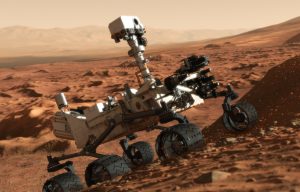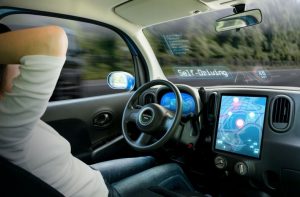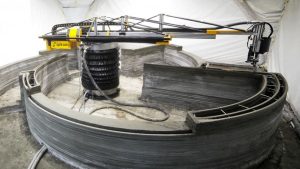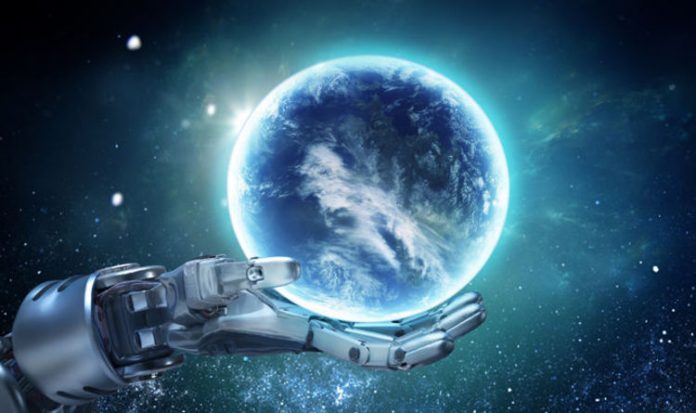We’re all excited by the possibilities that the future will hold. In just the last century, there have been some amazing leaps in technology. Someone who was born a 100 years ago would scarcely be able to believe the fantastic achievements that have been made in the world of technology.
In the early 1900s, there was no television, no radio, no computers, and no airplanes. Telephones, movie theaters, trains, and cars were in their infancy. Someone who was around at the turn of the 20th century would be astounded by the things that we can do today – sending rockets into space, using the Internet to get information at the touch of a button, calling people on the other side of the world from the palm of our hands, and watching movies in 3-D. He or she would marvel at the advances we have made in the last few years.
With all the achievements in technology that scientists have made in the last century, and, especially, in the last few decades, speculation is rife about what the future has in store for us in terms of technological advancements. With self-driving cars, holograms, and sending people to Mars just around the corner, which technologies are likely to dominate our world in the next 20 years?

The Hyperloop
 The Hyperloop is a highly anticipated invention that looks set to revolutionize the way we travel in under a decade’s time. Based on an idea conceived in 2013, this futuristic form of transport will be able to move people and cargo between cities at the same speed as flight, but at a much lower cost. Moving at almost 700 mph, this electromagnetically levitated transportation method will have no turbulence, no sound, and will be direct to its destination. It is hoped that there will be a fully functioning Hyperloop in place by 2021.
The Hyperloop is a highly anticipated invention that looks set to revolutionize the way we travel in under a decade’s time. Based on an idea conceived in 2013, this futuristic form of transport will be able to move people and cargo between cities at the same speed as flight, but at a much lower cost. Moving at almost 700 mph, this electromagnetically levitated transportation method will have no turbulence, no sound, and will be direct to its destination. It is hoped that there will be a fully functioning Hyperloop in place by 2021.
Artificial Intelligence
 AI is already in use around the world and has a number of existing applications, including helping doctors to perform surgery, helping banks to prevent fraud, and making peripheral characters in video games appear to act in a natural manner. However, within the next few years, it’s been predicted that artificial intelligence will be employed in a number of dangerous fields to help preserve human life. Jobs, such as welding and bomb disposal, are just two of the areas in which fully functioning artificial intelligence could prove to be helpful. It is believed that machines will be developed that can think like a human by 2025.
AI is already in use around the world and has a number of existing applications, including helping doctors to perform surgery, helping banks to prevent fraud, and making peripheral characters in video games appear to act in a natural manner. However, within the next few years, it’s been predicted that artificial intelligence will be employed in a number of dangerous fields to help preserve human life. Jobs, such as welding and bomb disposal, are just two of the areas in which fully functioning artificial intelligence could prove to be helpful. It is believed that machines will be developed that can think like a human by 2025.
Trips to Mars

The SpaceX company has widely publicized its intention to send both cargo and humans to Mars within our lifetime. It has planned its first mission in 2022. The objectives of that mission would be to assess the hazards and water sources and to set up some infrastructure so that everything would be ready for the next mission. Planned for 2024, this mission would have a human crew on board. The plan is to set up a base on the Red Planet that would eventually become a city and the beginnings of a full Mars civilization.
Advanced Prosthetic Limbs
For years, people who have been born without limbs or who have required an amputation have had to get by with rudimentary replacement limbs that were uncomfortable to wear and very basic. However, in the last few years there have been a number of advances in this area, And, very recently, patients have been able to receive prosthetic limbs that can be controlled by using the power of thought and a prosthetic hand has even been invented that can simulate the sense of touch. Experts believe that fully integrated bionic limbs are on the horizon, and they could possibly not only restore function but could even give people new skills.
Virtual Reality in The Classroom
 Everyone remembers how boring it could be to sit in the classroom while a teacher told us to turn to page eight of the textbook and start reading. If anything was going to put us off learning about any subject, it was reading a dry old book. However, the way of the future could be a lot more exciting. Children in tomorrow’s classrooms could be harnessing the power of virtual reality to actually experience for themselves the great events in history and the power of the natural world.
Everyone remembers how boring it could be to sit in the classroom while a teacher told us to turn to page eight of the textbook and start reading. If anything was going to put us off learning about any subject, it was reading a dry old book. However, the way of the future could be a lot more exciting. Children in tomorrow’s classrooms could be harnessing the power of virtual reality to actually experience for themselves the great events in history and the power of the natural world.
Geography would be a very different learning experience if we could actually get up close to a volcano, and history would be a lot more interesting if we could actually stand in the streets of Pompeii as Vesuvius erupted. The technology is already there to be able to do this, and as VR systems become more widespread, both in private homes as gaming devices and in public settings, such as hospitals to help doctors in surgery, it is more likely that they will find their way into educational establishments around the world.
Self-Driving Cars
 The technology for self-driving cars is already available, but, at present, it’s in its infancy. Current vehicles that have adopted self-driving technology still need a human behind the wheel to take control, just in case of an incident. And, there have been some well-publicized accidents involving this cutting-edge car. However, within the next decade, it is predicted by experts that this technology will progress in leaps and bounds, and, very soon, the reality of fully self-driving cars will no longer be the stuff of science fiction. It only requires the road infrastructure to deal with it.
The technology for self-driving cars is already available, but, at present, it’s in its infancy. Current vehicles that have adopted self-driving technology still need a human behind the wheel to take control, just in case of an incident. And, there have been some well-publicized accidents involving this cutting-edge car. However, within the next decade, it is predicted by experts that this technology will progress in leaps and bounds, and, very soon, the reality of fully self-driving cars will no longer be the stuff of science fiction. It only requires the road infrastructure to deal with it.
3-D-Printed Housing
 Housing is in crisis in many countries around the world. There is a huge demand for more housing. And, it’s just housing. But, houses that can be constructed quickly and cheaply, and are something the average person can afford. The solution could well be 3-D-printed homes. In March 2017, images appeared online of a fully 3-D-printed home in Russia that cost just over $10,000 to build and could last as long as 175 years. Once this technology is perfected and becomes more widely available, could it be the answer to building more houses within the next 20 years?
Housing is in crisis in many countries around the world. There is a huge demand for more housing. And, it’s just housing. But, houses that can be constructed quickly and cheaply, and are something the average person can afford. The solution could well be 3-D-printed homes. In March 2017, images appeared online of a fully 3-D-printed home in Russia that cost just over $10,000 to build and could last as long as 175 years. Once this technology is perfected and becomes more widely available, could it be the answer to building more houses within the next 20 years?
Robotic Servants
 The idea of getting a robot to do your household chores for you has long been a staple of science fiction. However, it could be a reality within the next few years if innovative inventors have anything to do with it. Already, there are a number of robot-style vacuum cleaners that can clean the floors of your home without the need to manually manipulate it.
The idea of getting a robot to do your household chores for you has long been a staple of science fiction. However, it could be a reality within the next few years if innovative inventors have anything to do with it. Already, there are a number of robot-style vacuum cleaners that can clean the floors of your home without the need to manually manipulate it.
The next step is to create robots that will be able to do all those other annoying tasks so that humans can be freed up to do more interesting things and to have more leisure time. Inventors are already working on a number of droids that look set to help us to manage our time more effectively and to accomplish simple jobs in the home. Hopefully, within the next two decades, there will be robot helpers available to do every boring task, from changing the bed linen to preparing the dinner!
Who knows what the future of technology will hold for us. However, whatever the next 20 years has in store, we can guarantee that it will have plenty of advances in it!
Disclaimer: All images are copyright to their respective owners and are used by USA Online Casino for informational purposes only.










